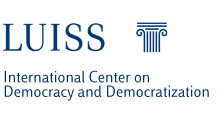Behavioral Economics
The main research interests of Behavioral Economics Unit are related to the study of behavior in organizations and institutions, as well as of organizational learning. These issues have been developed by Professor Egidi since the 80’s when he was collaborating with a group at Santa Fe Institute led by Herbert Simon and Jim March. Most of his papers released in the last decade concern biases emerging in problem solving both in individual and team contexts. Egidi’s experiments suggest that biases may result from the process of mental editing by which subjects produce an imperfect and incomplete “representation” of the decision problem. From his experiments, stable sub-optimal routinized behaviors emerged, and offered clear evidence of the process of behavior routinization, in which individuals make use of the same strategy irrespectively of the context in which they have to operate. This happens both in individual and in organizational contexts. The experimental evidence shows that a different balance between exploration of new solutions and exploitation of the old ones characterize different individuals and gives rise to different propensity to innovate and to risk. Why many people remain lock-in into a routinized behavior is explained in terms of biases that distort the process of categorization through which people discovery a strategy. The result is the construction of an imperfect mental representation of the problem that nevertheless has the advantage of being simple and in many conditions produces stable, efficient – but sub-optimal- behaviors.


